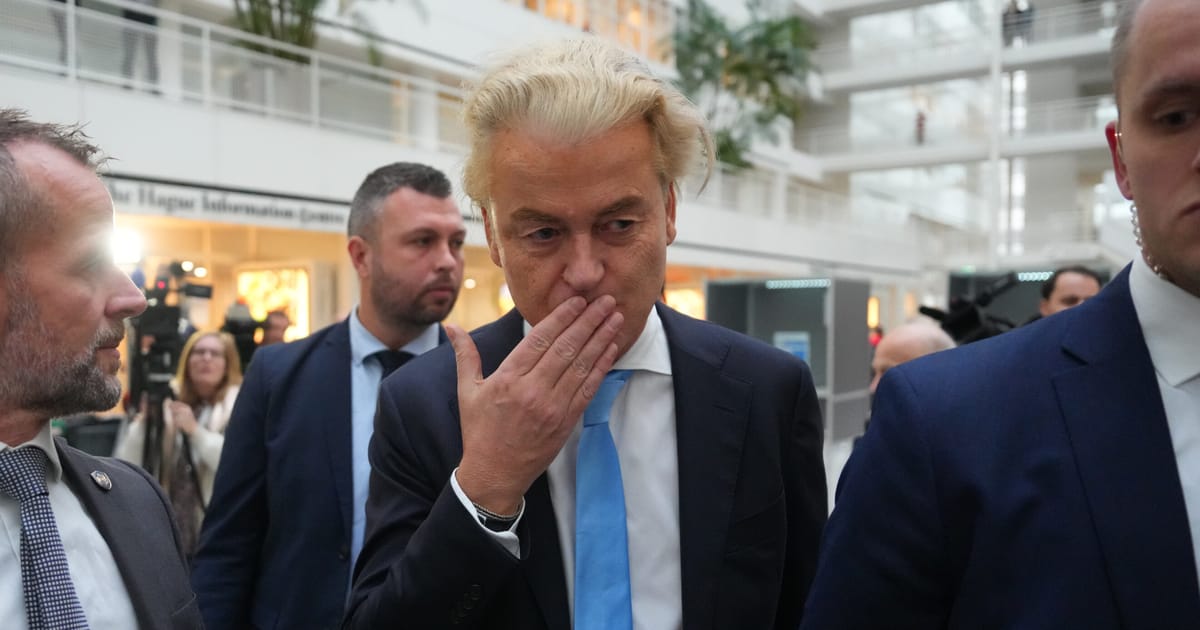The anti-Islam, euroskeptic radical Geert Wilders is projected to be the shock winner of the Dutch election.
In a dramatic result that will stun European politics, his Freedom Party (PVV) is set to win around 35 of the 150 seats in parliament — more than double the number it secured in the 2021 election, according to exit polls.
Frans Timmermans’ Labour-Green alliance is forecast to take second place, winning 25 seats — a big jump from its current 17. Dilan Yeşilgöz, outgoing premier Mark Rutte’s successor as head of the center-right VVD, suffered heavy losses and is on course to take 24 seats, 10 fewer than before, according to the updated exit poll by Ipsos for national broadcaster NOS.
A win for Wilders will put the Netherlands on track — potentially — for a dramatic shift in direction, after Rutte’s four consecutive centrist governments. The question now, though, is whether any other parties are willing to join Wilders to form a coalition. Despite emerging as the largest party, he will lack an overall majority in parliament.



Also the Dutch political system relies very heavily on coalitions and the “polder model” since no party can ever win a majority of seats in their House of Representatives.
Asking out of ignorance, but why would no party ever be able to win a majority? Are there just too many parties to allow for one to have that much control?
In theory it is possible, in practise it is not. Indeed there are a lot of parties covering the spectrum from left to right.
Its a bit like italy: you have many right and left parties, but each one has some flavors (stance in different issues), so you vote for the right/left party that is more in line with you social and economical policies (or a part leader you like for personality).
Since there are many choices, and each party tries to get a slice if the electorate, its very hard for a single party to cather to the majority if the peoples.
So they form a coalition, and each party in the coalition pass what are the common points, and depending on how well they have done) compromise within the coalition to pass some if their agendas
There is no reason for more unity if folks know they will have to work together. I look at American party’s more as a sort of permanent coalition goverment then political partys really. The real benefit in my view is that this goverment form always stears back to the center, Geert can say what he wants Omzigt and Yeşilgöz wil force him to compromise a lot to form a goverment.
Read the whole wiki, and all I can tell is it’s a label some politician came up with for simply compromising on a common goal to push it through when multiple parties overlap at least partially in agreement of that goal. Nothing beyond that, doesn’t say how, give guidelines or a framework. I guess it’s just a label for being ok with no majority party.